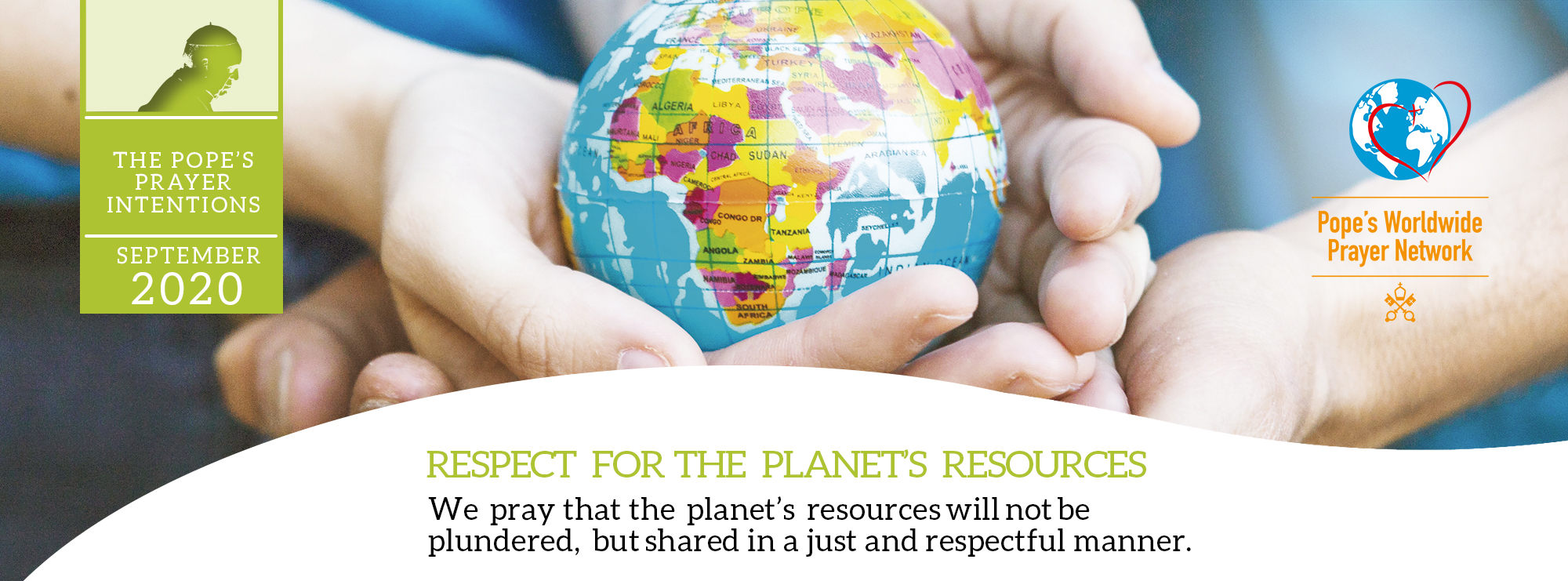September’s intention: “We pray that the planet’s resources will not be plundered but shared in a just and respectful manner.”
The pope is asking us to pray that we, as individuals and all humanity, cease plundering the planet’s resources and share them fairly, writes JACQUES ST LAURENT SJ. We need to ask ourselves what this means.
WE ARE PLUNDERING THE EARTH’S RESOURCES
In the UK, the average person consumes 2.4 times their share of the Earth’s resources. Could this be an example of the “plundering” of the planet’s resources that Francis is referring to? Are we one of the elites that choose to live as though we have, “the right to consume in a way which can never be universalised, since the planet could not even contain the waste products of such consumption?”
A misjudged sense of entitlement, even though held unconsciously, impoverishes everyone. For example, a Christian might pray “give us our day our daily bread” during the Lord’s prayer without noting that “the bread that the Christian asks for in prayer is not ‘mine’ but ‘our’ bread.”
A possessive attitude towards the things in our life interrupts the natural economy. If we fail to share what we have, God’s plan to tend to each person’s need cannot be realised.
Pope Francis is encouraging us to discover the meaning of Jesus’ teaching that, “It is more blessed to give than to receive.”
We are invited to enter into the joy and freedom that comes from a sense of global solidarity and common destiny. He is calling us to wake up the fact that “the world is a gift which we have freely received and must share with others.”
GIFTS, NOT FOR US, BUT FOR ALL
It is easy to share what we have when we see our gifts as a means to help others, rather than ends in themselves. St Ignatius suggests that, “we ought to appreciate and use these gifts of God insofar as they help us toward our goal of loving service and union with God.”
By choosing to share in a “just and respectful manner”, we can resolve the interconnected global crises of climate change, inequality, resource conflicts and unsustainable consumption patterns. Sharing is a win-win situation for the giver and the receiver.
This raises the challenging question of how we should give. The Gospel illustrates again and again that giving should be an act of love – a giving of one’s self. St Ignatius points out that, “love consists in a mutual sharing of goods, for example, the lover gives and shares with the beloved what he possesses, or something of that which he has or is able to give; and vice versa, the beloved shares with the lover.”
We give out of love, and love requires that we seek to balance our own needs with those of others.
THE PLANET HAS ENOUGH RESOURCES FOR EVERYONE
There are enough resources on the planet for everyone to have their needs met. And yet, many millions of people currently unable to meet their basic needs. Our daily choices can make it even harder for them to do so.
The “sharing” that Francis speaks of requires more from us than simply paying our taxes and occasionally giving to charity. It demands that we become conscious of the impact of our everyday choices. Every time that we choose to fly somewhere in an aeroplane or buy a phone produced by an unethical supply chain or choose to order a steak rather than a mushroom burger, we are “plundering” the planet’s resources and denying others from meeting their basic needs.
HOW CAN WE TRANSFORM THIS SITUATION?
In order for us to be able to “share in a just and respectful manner”, we will need to reflect on how we can transform the unjust and exploitative structures around us in our daily lives. We might look for ways to buy local produce and support local businesses, to minimise our energy consumption and waste production and increase the effectiveness of our charitable giving.
Our gratitude for what we have, and our desire to help others, may be our motivation to share, but we will not be effective in doing so unless we seek to understand what it means to be “just and respectful” within the complexity of our globalised world.

